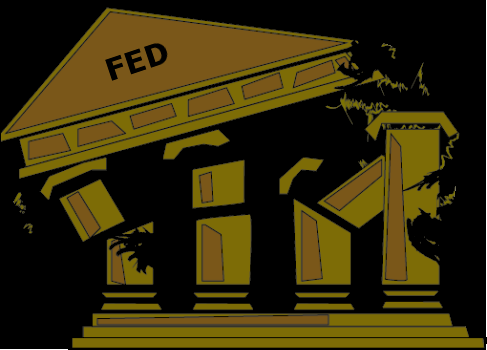
Beware of regulations, mandates, and policy enforcement.
The Bank of England ("BoE" is the UK's Central Bank) published a press release in July 2017 revealing they now allow a new generation of non-bank payment service providers eligibility for a settlement account in the BoE’s real-time gross settlement (RTGS) system with direct access to the UK’s sterling payment systems that settle in sterling central bank money, including Faster Payments, Bacs, CHAPS, LINK, Visa, and the new digital cheque imaging system.
This appears to me that the banking cartel is preparing the path for FINTECH and blockchain developers!
If you do not read the full text, then remember these key points:
" Digital wallets draw funds from payment cards or bank accounts. Marketplace loans most often depend on loan origination by a bank partner. And payment innovations often "settle up" over legacy payment rails, like the automated clearinghouse system.(While Bitcoin is a notable exception, many consumers still rely on connecting their bank accounts with Bitcoin exchanges to convert their fiat currency to virtual currency and vice-versa.)"
[...]
"As envisioned by the OCC, obtaining a special purpose charter would have the practical effect of allowing certain fintech companies to potentially bypass the need for connecting to a bank for certain purposes in favor of becoming licensed as banks themselves. The OCC's proposal raises interpretive and policy issues for the Federal Reserve regarding whether charter recipients would become Federal Reserve members or have access to Federal Reserve accounts and services, such as direct access to payment systems."
[...]
"In the European Union, beginning in 2018, member states will be required to start implementing the European Parliament's revised Payment Services Directive (PSD2)." -Governor Lael Brainard
Where Do Banks Fit in the Fintech Stack?

source Federal Reserve
"Lael Brainard took office as a member of the Board of Governors of the Federal Reserve System on June 16, 2014, to fill an unexpired term ending January 31, 2026."
Below are some excerpts from the FEDERAL RESERVE.gov website:
The iPhone is a key platform on which that app ecosystem operates. How did that happen? Apple essentially made the smartphone a toolkit for third-party developers to experiment, innovate, build, and scale new apps. It did so by investing heavily in developing open application programming interfaces (APIs) that provided third-party developers clear instructions and open access to the iPhone platform. This strategy enabled those outside developers to build new applications that delivered Apple's customers additional value by taking advantage of the existing functionality of the iPhone. Specifically, this open architecture makes available to outside developers clear instructions that enable them to use the iPhone's various sensors, processors, displays, and other interfaces in combination with their own code to develop new products.
But for all of the talk of "disruption," I want to underscore an important point: More often than not, there is a banking organization somewhere in the fintech stack. Just as third-party app developers rely on smartphone sensors, processors, and interfaces, fintech developers need banks somewhere in the stack for such things as: (a) access to consumer deposits or related account data, (b) access to payment systems, (c) credit origination, or (d) compliance management.8 For instance, account comparison services rely on access to data from consumers' bank accounts. Savings and investment apps analyze transactions data from bank accounts to understand how to optimize performance and manage the funds consumers hold in those accounts. Digital wallets draw funds from payment cards or bank accounts. Marketplace loans most often depend on loan origination by a bank partner. And payment innovations often "settle up" over legacy payment rails, like the automated clearinghouse system.9 In short, the software stacks of almost all fintech apps point to a bank at one layer or another.
Because of the high stakes, fintech firms, banks, data aggregators, consumer groups, and regulators are all still figuring out how best to do the connecting. There are a few alternative approaches in operation today, with various advantages and drawbacks.
A number of large banks have developed or are in the process of developing interfaces to allow outside developers access to their platforms under controlled conditions. Similar to Apple opening the APIs of its phones and operating systems, these financial companies are working to provide APIs to outside developers, who can then build new products on the banks' platforms.
As regulators, we have a responsibility to ensure that the institutions subject to our supervision are operated safely and soundly and that they comply with applicable statutes and regulations.
[...]
Regulators in the United Kingdom and continental Europe have recently outlined new approaches to facilitate connectivity in financial services, while attempting to mitigate the associated risks. In August 2016, the UK Competition & Markets Authority (CMA) released a package of mandates aimed at increasing competition for consumer and small business current accounts (akin to U.S. checking accounts).27 This year nine of the country's largest banks were required to create open APIs to share nonsensitive, non-consumer-specific information, like pricing, fees, terms, and conditions as well as branch and automated teller machine locations.28 This initial limited sharing of information has started communication and collaboration across the industry on areas like data standards and organizational governance, which will facilitate work on more contentious questions. Before March 2018, the CMA is scheduled to enforce a broader package of reforms, including mandating that the nine banks create APIs that allow third-party banks and nonbanks to access consumer accounts for reading transaction data and payment initiation.
In the European Union, beginning in 2018, member states will be required to start implementing the European Parliament's revised Payment Services Directive (PSD2).29
[...]
the Office of the Comptroller of the Currency (OCC), which is responsible for administering national bank charters, has announced that it is exploring offering "special purpose national bank charters" to fintech companies.34 As envisioned by the OCC, obtaining a special purpose charter would have the practical effect of allowing certain fintech companies (companies that make loans, make payments, or accept deposits) to potentially bypass the need for connecting to a bank for certain purposes in favor of becoming licensed as banks themselves. The OCC's proposal raises interpretive and policy issues for the Federal Reserve regarding whether charter recipients would become Federal Reserve members or have access to Federal Reserve accounts and services, such as direct access to payment systems. If the OCC proposal is finalized, the Federal Reserve would have to closely analyze these issues with respect to any fintech firms that express an interest in moving forward with an application.
I encourage you to download the entire text and bibliography - "Know thy enemy".
Download pdf version here.
https://www.federalreserve.gov/newsevents/speech/brainard20170428a.htm
Read how the ECB's revised Payment Services Directive (PSD2) has focused the opportunities it could create for new fintech companies, and how mega-corporations are also viewing the reforms as an opportunity in the changing market:
European Banking Authority "EBA" publishes a Discussion Paper on its approach to FinTech 04 August 2017
Financial Institutions news, tag psd2
Related Posts:
The IMF's SDR Role as the Preeminent Reserve Currency: De-Dollarization Policy Agreement
Blockchain, Virtual Currencies, and FINTECH are no ACCIDENT
Blockchain Video Promo has creepy subliminal message!
With policies ratified and structural reforms underway, next comes armed enforcement!
"Banks and fintechs are also increasingly cooperating rather than competing."
More Evidence For The Coming Blockchain Regulations and New Policies To Enforce
Oh-oh, Goldman Sachs Has A Cryptocurrency Patent!
If you find this information useful or of value then please share it with others.
Re-steemit forward. Re-steemit so others can see this too.
If you like this post, do not forget to  upvote or follow me and resteem
upvote or follow me and resteem

Hi @ronmamita,
I just want to thank you for showing me the reality.
I was just searching for info related to this Blockchain technology and I came across your posts, including the one with the video Blockchain Video Promo has creepy subliminal message!
I've been talking with my co-workers about all this hype, "one talks about wanting to retire at 45 years old", "others talk about this is the future in terms of DevOps", and I'm just wondering... what about the Governments?!. It seems they have reasons to be afraid of this Tech. and also wondering how would they allow themselves to lose so much $$$$. Now, after reading your post I'm totally sure they're not sleeping, quite the opposite.
In fact, even Microsoft has now a Blockchain service. For those interested, I leave here the link BaaS DevOps. With Whom are they going to partner?, right? Everyone knows, including, taking advantage to cache in with the private sector.
At least the info is available if you are really interested to pursue it and too know the game rules.
Thank you once more.
Downvoting a post can decrease pending rewards and make it less visible. Common reasons:
Submit
Hi @applokiz I'm pleased to meet you.
Thanks for the encouraging words, I am glad the information is being seen by more worldwide - indeed the more awareness the more eyeballs to see and reveal more hidden deception and secrets.
For instance I have not been looking at Microsuck recently and your comment will have me looking at their FINTECH strategy and yes "the info is available" but not on the msm fake news outlets.
Thank you for being here, hope to hear from you again, you are always welcome to share the documents you have seen.
Downvoting a post can decrease pending rewards and make it less visible. Common reasons:
Submit
Hi! I am a robot. I just upvoted you! I found similar content that readers might be interested in:
http://www.bis.org/review/r170502b.pdf
Downvoting a post can decrease pending rewards and make it less visible. Common reasons:
Submit
Thanks cheetah-bot, she works for the FED and that is the source BIS was mirroring - from one central bank to the Central Bank of central banks (six one way, half a dozen the other); the central banksters are paving a path for FINTECH and virtual currencies.
Beware of the digital battleground.
Downvoting a post can decrease pending rewards and make it less visible. Common reasons:
Submit
isn't this good news for crypto investors?
Downvoting a post can decrease pending rewards and make it less visible. Common reasons:
Submit
Yes and no imo. Crypto is about the people controlling the money supply and markets. Yes, this will make crypto less "sketchy" to the general public but it is not what the crypto community has been aiming for. Also I think there will be issues with crypto companies that are currently running. They will need to adjust to the incoming regulations and could even make some close. But over all this will end up being good for our holdings.
Downvoting a post can decrease pending rewards and make it less visible. Common reasons:
Submit
Here is my response, Alert & Awareness for effective threat management and self defence:

Amplify Awareness (AA) and share this information worldwide.
Downvoting a post can decrease pending rewards and make it less visible. Common reasons:
Submit